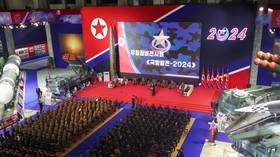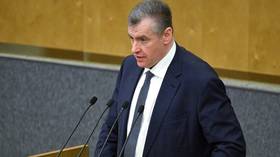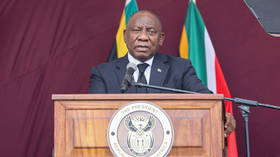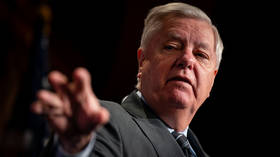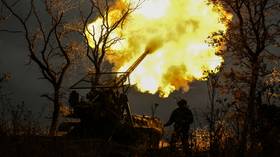Market speculations, not real demand, sank Russian oil to 20-year lows
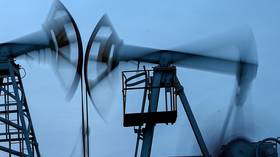
The swings in the oil market are mainly caused by the coronavirus pandemic and the lack of a deal between the OPEC and major exporters of crude. However, some analysts believe that there are more factors behind the market rout.
The price for Russian Urals oil blend fell to $10.54 per barrel (CIF Rotterdam) on April 2, the weakest level since March 1999. Despite having managed to rebound since then, the rally could be short-term and just a reaction to a possible big oil deal, independent economic analyst Narek Avakyan told RT, explaining that demand is still going to fall amid the pandemic and worldwide boost in oil output.
“The surplus of nearly 20 million barrels per day is a catastrophic situation,” he said, adding that crude storages are running out of space forcing some companies to give away some amounts of oil.
Also on rt.com OPEC+ emergency meeting to be held on April 9While most analysts agree that the Covid-19 and the uncertainty on new output curbs are definitely the main factors sinking oil prices, the current situation on the energy market could be the result of massive speculations, according to Rustam Tankaev, leading expert at the Russian Union of Oil and Gas Industrialists and the head of the Infotek-Terminal consultancy.
“It is a necessary evil that comes with every crisis, it’s called speculators,” the strategist said in a phone interview. “When the market is very unstable, transactions conducted by them are quite effective. Whole fortunes are made in a few days, that’s how [George] Soros got rich.”
Tankaev believes the turmoil cannot last long, as all the participants of the markets are resisting it. Additionally, he expects that the supply glut will be over in the near future, because low oil not only affects US shale companies, but also American and Middle East producers of synthetic motor fuel. Both are cost effective only if crude trades at around $60 per barrel, and their collapse would deprive the market of 10 million barrels per day, which is enough to boost demand.
Not all the analysts support this forecast, with chief analyst at Premier BCS, Sergey Suverov, noting that everything now depends on how long the coronavirus outbreak will hold. “For now the situation is not improving, the economic damage remains high and could be even higher if the quarantine lasts for several months,” he said.
Apart from the containment of the deadly virus, the success of talks between Russia and OPEC members, that are expected to be held next week, could be another key to crisis resolution. “Oil prices will rise even more if there is a new deal. Even better, if US producers join in [the output cuts],” said economist Valery Mironov, Deputy Director of Center of Development Institute at the Higher School of Economics.
Washington has not signaled so far that it is ready to support any restrictions on its oil industry, with US President Donald Trump saying that he has never been fan of the “illegal” OPEC “cartel.” However, analysts believe that a broader agreement could be an effective tool to solve the current crisis, since the previous accord failed to bring long-term results.
“The previous form of OPEC deal had to cease existence sooner or later,” Andrey Kolpakov, senior researcher at the Institute of Economic Forecasting of the Russian Academy of Sciences (IEF RAS), told RT. “If this scenario [with the participation of the US] comes into reality, it would more effective mechanism to stabilize the market.”
For more stories on economy & finance visit RT's business section




